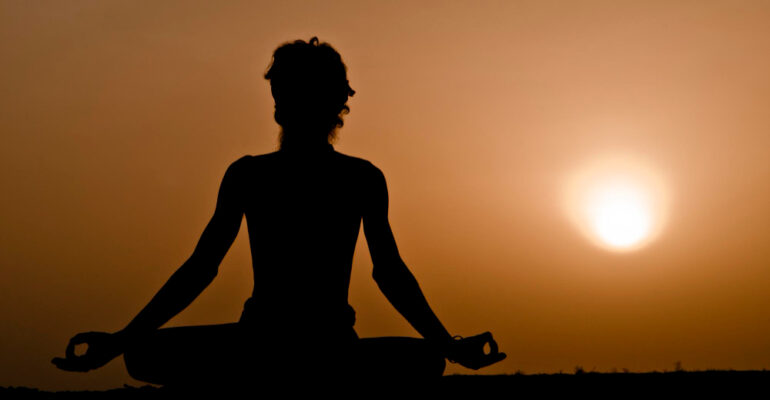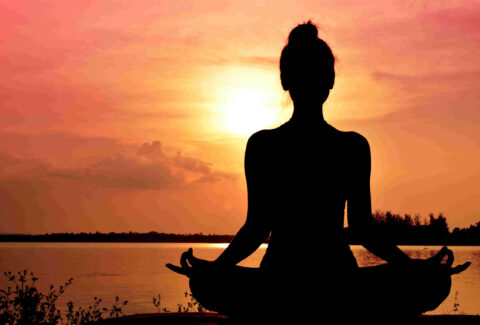Best Meditation Techniques to Treat Anxiety and Depression

Best Meditation Techniques to Treat Anxiety and Depression
We live in a hectic world, and so many people are battling stress, negativity and emotional issues. Anxiety and depression are among the common mental health issues that millions of people in every part of the world are facing. While medical treatment and therapy are absolutely vital, natural remedies like meditation for anxiety and depression are making a lot of noise for much-needed reasons. Meditation calms the mind and creates inner strength that everyone can use for a more peaceful existence.
If you are searching for safe and easy remedies to cure depression and anxiety, then this post will explain the best meditation to treat anxiety and depression that you can do every day.
Why Choose Meditation for Anxiety and Depression?
Meditation is a weapon that can change your life. Practised regularly, it reduces stress and enhances concentration, fostering overall well-being. Those who engage in mindfulness meditation for anxiety are more likely to see a decrease in racing thoughts and an increase in positive thoughts. Unlike quick fixes, this practice helps ingrain long-term habits that can contribute to good mental health.
Another advantage is accessibility. Meditation requires no special equipment so that you can get started at home. This is why it’s a great option for anyone looking to heal their anxiety and depression naturally.
1. Mindfulness Meditation
Anxiety and mindfulness meditation are one of the most effective forms. It’s about coming into presence and noticing thoughts and feelings without latching on to them. Instead of beating yourself up for attempts to shove them out of your mind, mindfulness shows you how just to let those thoughts pass gently and with a serene detachment, as if they are nothing.
How to Practice:
- Find a peaceful and quiet place where you can sit or lie down comfortably.
- Focus on your breathing.
- Observe any thought that appears. I need more people saying yes, but don’t get hung up on that.
- Gently return your attention to the breath.
This is a way to end overthinking, and it helps you form emotional balance. Over time, it’s easier to deal with clear situations.
2. Guided Meditation
Guided meditation is a great way to manage anxiety and depression, particularly for beginners. It is based on listening to a teacher, recording or a mobile app offering step-by-step directions. The guide can walk you through soothing visualisations such as a stroll in a tranquil forest or sitting by the ocean.
If you struggle to focus, though, guided meditation can help you get there. It helps break the mind out of negative cycles and fosters peacefulness.
3. Breathing Meditation
Our breath and our emotions are intimately linked. When we are anxious, some of us put our heads down and breathe shallowly and quickly. Focusing on your breathing through meditation practices can have a calming effect on the nervous system and facilitate effective stress management.
How to Practice:
- Close your eyes and breathe deeply in through the nose.
- Hold it for a few seconds.
- Slowly exhale through your mouth.
- Repeat for 5–10 minutes daily.
Get your meditation in whenever you can by practising this simple method to relieve stress and anxiety: throughout work or before bedtime.
4. Loving-Kindness Meditation
Anxiety and depression tend to leave us feeling disconnected or isolated from others. Loving-kindness meditation is centred on cultivating compassion and goodwill towards oneself and others. It starts with positive affirmations such as:
- “May I be happy.”
- “May I be healthy.”
- “May I live in peace.”
Then you spread that love to friends and family, even strangers. This skill fosters emotional warmth and curbs feelings of loneliness, making it a potent treatment for such conditions as anxiety and depression.
5. Body Scan Meditation
Body scan meditation focuses attention on various parts of the body, promoting the release of physical and mental tension. We all carry tension in our bodies when we are stressed and/or upset. Thus, this helps the body relax.
How to Practice:
- Rest quietly in a dark room.
- Concentrate on your toes and gradually move upward through your legs, stomach, chest and head.
- Notice sensations: tension or warmth, relaxation or ease.
- Keep breathing deeply in and out!
This practice strengthens your mind-body connection and helps you reduce tension in general.
6. Mantra Meditation
A mantra meditation involves the silent repetition of a word or a phrase to keep distracting thoughts away. Terms such as “peace” or “I am calm” are popular. Such repetition can help break the chain of anxious or depressive thinking and foster mental clarity. It is a simple and effective method to learn inner calm and use Meditation to reduce stress and anxiety every day.
Conclusion
Meditation isn’t like taking a pill. It’s a way of life. With the integration of methods such as mindfulness, breathing techniques, and guided meditation, these are natural ways of treating anxiety and depression. It’s all about consistency. Only 10 or 20 minutes a day can change your mental and emotional health. Mediation isn’t about stopping your thoughts. That’s a common myth, and it couldn’t be further from the truth.
Karan Kakkad is a health and lifestyle coach who has been helping many people improve their stress and strains of life. Working holistically, he combines the latest treatments with age-old techniques for long-lasting results. His work guiding people in lifestyle changes, stress management, and natural healing has since labelled him as an authority in the field.
Whether you want to enhance productivity, develop emotional strength or stay in the present moment, Karan Kakkad gives you all the tools and actionable strategies that have helped thousands like you live a healthier and happier life.
FAQs
Q1. How many times a day should I meditate for anxiety and depression?
A1. We recommend that the training be done daily for at least 10–20 minutes.
Q2. Can anxiety and depression be cured entirely through meditation?
A2. Meditation is an adjunctive tool which reduces symptoms. For serious illnesses, it is best taken along with professional medical treatment.
Q3. What is the most effective way to meditate to decrease anxiety and stress, fast?
A3. Breathing meditation is easy and powerful, and it can do wonders in a pinch.





Recent Comments